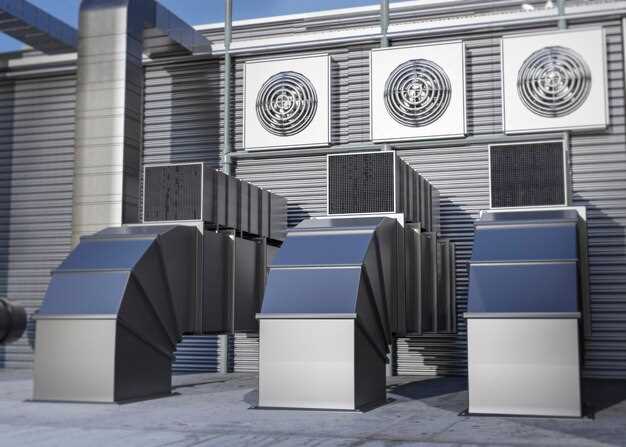
When the summer heat sets in, your air conditioning (AC) system becomes a crucial component of your home comfort. However, it’s essential to be aware of the potential problems that can arise, particularly with the AC compressor. This vital part is responsible for circulating refrigerant throughout your cooling system, and any signs of failure can lead to discomfort, increased energy bills, and costly repairs.
One of the most common indicators of a failing AC compressor is unusual noise. A properly functioning compressor operates quietly, but if you begin to hear strange sounds such as grinding, clanking, or hissing, it may signal underlying issues. These noises can indicate an internal failure or that the compressor is struggling to perform its job effectively.
Another sign to watch for is a decrease in cooling efficiency. If your AC system is not able to maintain the desired temperature or takes longer than usual to cool your space, it could be due to a failing compressor. Diminished performance can lead to the system working harder, which further exacerbates the problem and increases wear and tear.
Being attuned to these signs will not only help you identify potential AC compressor failures early but also enable you to take proactive measures to ensure your home remains cool and comfortable throughout the warm months. Proper maintenance and timely repairs can help extend the life of your AC system and reduce unexpected breakdowns.
Unusual Noises Indicating Compressor Issues

Identifying unusual noises from your air conditioning system is crucial for early detection of compressor problems. A properly functioning compressor operates quietly, but certain sounds can signal that maintenance is needed. Here are some common noises that may indicate issues with your compressor:
- Banging: This sound may suggest that internal components of the compressor are loose or damaged. It could also indicate issues with the mounting or structure surrounding the unit.
- Hissing: A hissing noise might point to a refrigerant leak within the system. Low refrigerant levels can lead to decreased efficiency and potential compressor failure.
- Squealing: High-pitched squealing could be a sign of worn bearings or belts in the compressor. Regular maintenance can help prevent this issue from escalating.
- Clattering: If you hear clattering, it may suggest that debris is lodged within the compressor or that something is rattling around inside. This can cause serious damage if not addressed.
- Grinding: A grinding noise indicates severe wear on the internal components of the compressor. This may require immediate attention to prevent complete failure.
- Clicking: Repeated clicking noises can indicate that the compressor is struggling to start due to electrical issues or a failing relay.
Noticing any of these sounds should prompt an immediate inspection by a qualified technician. Timely intervention can save your air conditioning system and extend the life of the compressor.
Common Visual Signs of Compressor Damage
The compressor is a crucial component of your AC system, and noticing visual signs of damage early can prevent further issues. Here are some common indicators that your compressor may be failing:
1. Oil Leaks: One of the primary visual signs of a damaged compressor is the presence of oil leaks around the unit. If you observe dark stains or puddles near the compressor casing, this can indicate a refrigerant leakage or a failing seal within the unit.
2. Corrosion: Inspect the exterior of the compressor for any signs of rust or corrosion. Rust may signal moisture intrusion or environmental damage, which can compromise the efficiency and functionality of the AC system.
3. Physical Damage: Check for any visible dents, cracks, or deformities on the compressor itself. These imperfections can be a result of physical impact or manufacturing defects, which may affect its operation.
4. Burn Marks: Look for burn marks around electrical connections on the compressor. Discoloration in these areas can indicate overheating or electrical failure, both of which can lead to complete compressor failure.
5. Abnormal Sounds: Although primarily auditory, sometimes abnormal sounds may accompany visible issues. If you notice the unit is unusually noisy or emits grinding or rattling sounds, this could suggest internal damage.
6. Excessive Vibration: A compressor that vibrates excessively may have internal components that are worn or misaligned. Observing unusual vibrations can be a precursor to severe mechanical issues.
Regularly inspecting your AC compressor for these visual signs can help in early detection of failures, ensuring efficient cooling and preventing costly repairs.
Temperature Fluctuations and Compressor Performance
Temperature fluctuations can significantly affect the performance of an air conditioning compressor. A compressor is responsible for circulating refrigerant through the system and maintaining a consistent temperature within the indoor environment. When temperature conditions vary drastically, it places undue stress on the compressor, potentially leading to premature failure.
One of the critical indicators of a failing compressor is abnormal noise levels. A properly functioning compressor should operate quietly; however, when it experiences temperature changes, it may begin to produce unusual sounds such as grinding, squealing, or rattling. These noises often stem from increased wear and tear on the internal components, which struggle to adapt to fluctuating temperatures.
In addition to noise, the compressor’s efficiency can decrease due to these temperature variations. When the ambient temperature rises, the compressor must work harder to maintain desired indoor conditions. If it cannot cope with these demands, it may lead to overheating and further exacerbate the existing problem. Conversely, in cooler temperatures, the compressor might cycle on and off more frequently, causing strain on its mechanical parts.
Regular monitoring of temperature settings and the sound output of the compressor can help identify potential issues before they escalate. Addressing these fluctuations promptly ensures optimized compressor performance and extends the lifespan of the entire air conditioning system.
Importance of Regular Maintenance Checks

Regular maintenance checks are essential for ensuring the longevity and efficiency of your air conditioning system. Over time, components like the AC compressor can wear down, leading to reduced performance and increased energy costs. One of the key reasons to schedule routine maintenance is to identify early signs of potential failures, such as unusual noises coming from the unit. These sounds can indicate issues with the compressor or other parts, helping you address problems before they escalate.
During a maintenance check, technicians will inspect the AC system, clean critical components, and ensure proper refrigerant levels. This proactive approach not only aids in the early detection of issues but also enhances the overall efficiency of the system. An efficiently operating air conditioner consumes less energy, translating to lower utility bills and a reduced carbon footprint.
Additionally, regular checks allow for the replacement of aging parts and help maintain optimal airflow, reducing the chances of overheating and mechanical failures. Ignoring these maintenance needs could lead to breakdowns that are costly to repair and may even require a complete replacement of the unit. Therefore, investing in regular maintenance checks is crucial for maintaining a reliable and effective air conditioning system.
Diagnostic Tools for Identifying Compressor Problems
To effectively diagnose issues with an AC compressor, several tools can be utilized to pinpoint specific problems. These diagnostic tools help technicians assess the compressor’s performance and identify any underlying issues that may hinder its operation.
1. Manifold Gauge Set: This tool is essential for measuring the pressure of the refrigerant in the system. By connecting the manifold gauge set to the high and low-pressure ports of the AC system, technicians can determine if the compressor is functioning within normal pressure ranges. Abnormal readings may indicate compressor failures, such as inadequate refrigerant flow or possible leaks.
2. Multimeter: A multimeter is crucial for checking electrical connections and ensuring the compressor receives adequate voltage. By measuring the voltage at the compressor terminals, technicians can identify if there is a power issue. Additionally, they can check the compressor’s resistance, which can indicate shorts or open circuits within the windings.
3. Temperature Probe: Using a temperature probe allows technicians to measure the temperature of the air entering and exiting the compressor. A significant temperature difference indicates that the compressor is effectively transferring heat, while little to no difference could suggest a problem in the compressor’s functionality.
4. Ultrasonic Leak Detector: This device can be used to identify refrigerant leaks in the system. The presence of unwanted sounds or ultrasonic frequencies indicates leakage, which could be a sign of a failing compressor that is unable to maintain proper pressure levels.
5. Visual Inspection Tools: Basic visual inspection tools, such as flashlights and mirrors, allow technicians to examine the compressor for signs of leaks, wear, or damage. Observing oil stains or corrosion around the compressor can indicate issues that require further investigation.
Utilizing these diagnostic tools can facilitate the accurate identification of AC compressor problems, allowing for timely repairs and maintenance. Proper diagnosis not only ensures the longevity of the system but also improves overall efficiency and performance.
Steps to Take When Signs of Failure Appear
When you notice signs of a failing AC compressor, it’s essential to act quickly to prevent further damage. First, turn off your AC unit immediately to avoid additional strain on the compressor. This will help protect the compressor from overheating and potentially burning out completely.
Next, check the power supply to ensure that the unit is receiving adequate electricity. Inspect the circuit breaker and fuses related to the AC system. If there are issues with the power supply, resolve them before proceeding.
Inspect the refrigerant levels. Low refrigerant can indicate a leak or a malfunctioning compressor. If the refrigerant is low, call a professional to locate and repair any leaks, and recharge the system with the correct amount of refrigerant.
Examine the external unit for debris or obstructions that may impede airflow. Clear any vegetation, dirt, or debris that might be blocking the compressor’s vents, as proper airflow is crucial for efficient operation.
Listen for unusual sounds, such as grinding, hissing, or clanking noises coming from the compressor. If these sounds persist, document them and report them to a technician. Strange sounds often signal internal problems that require professional attention.
If the compressor is cycling on and off frequently or not starting at all, this could indicate an issue with the capacitor or the compressor itself. A technician can diagnose the specific problem and suggest repairs or replacements as necessary.
Finally, schedule a professional inspection as soon as possible. A certified HVAC technician can perform a thorough evaluation of your AC system to determine the extent of the compressor’s failure and recommend the best course of action, whether that involves repair or replacement.
